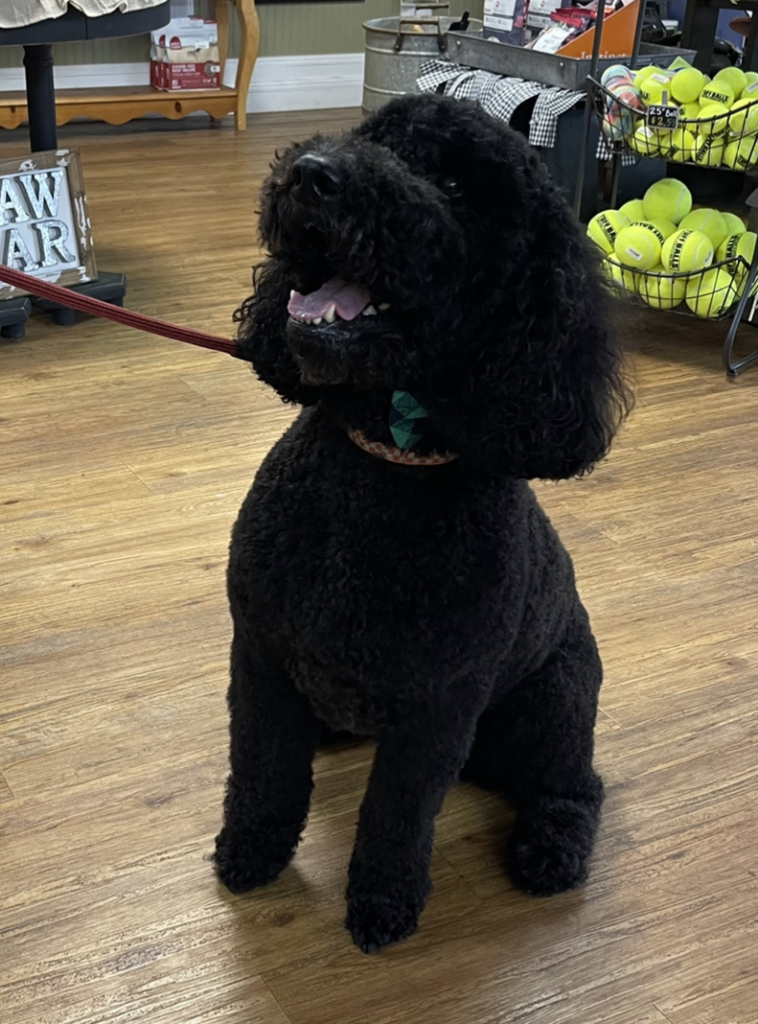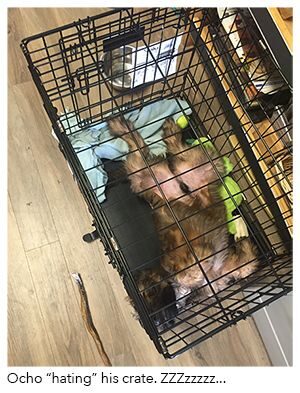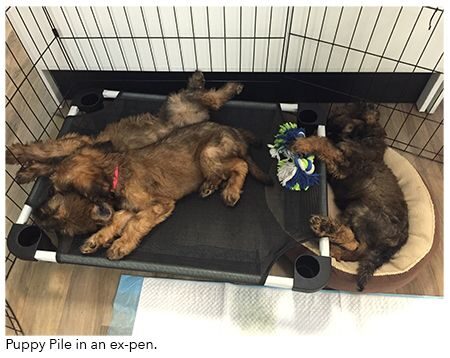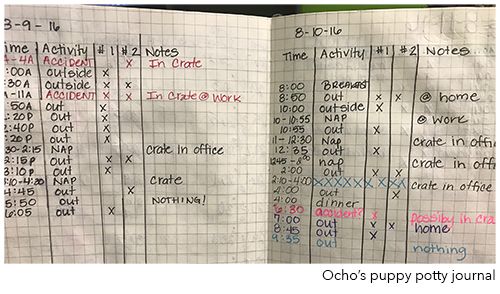
Sometimes I struggle with blog topics
It’s some kind of discipline to have content ready every week! And so today I’m sitting and staring at a blank page and wishing for a flash of inspiration.
…
Anyhoo. In the absence of a lightning strike AHA! moment, I’m going to reach into my Frequently Asked Questions and drum up an old but perennially relevant topic.
Puppy potty training! Because when in doubt, go for the bodily functions, amiright?
There is no one topic that gets more play in my puppy kindergarten class and there is no single other topic that causes as much frustration among new puppy owners. No matter the time of year, we can ALWAYS count on someone having a potty training issue. So, if you’re in the middle of potty training a new puppy or if you just want to have some survivor flashbacks of the time when you were in the thick of it…this blog post is for you!
The trick to successfully potty training your puppy quickly and easily is…
…supervision.
You thought I was going to say something deep and mystical, didn’t you? I know, I know. I wish I had a silver bullet for you! The truth is, that potty training is something that happens over time and with repetition. Potty training happens because you never give your little puppy a chance to make a mistake!
I am a huge proponent of crate training; give your puppy a place that is “all his” and keep him confined when you can’t watch him. In my opinion, it’s not just recommended but NECESSARY to successful house-training. Properly raised puppies will not soil in their “den” area and will learn to hold their bladders and bowels until they are let out of their crates. You can use this to your advantage!


In addition to a crate, I also recommend an exercise pen.
Basically, an exercise pen is a playpen for puppies. They are easy to fold up and move around. They are usually metal and are available in a variety of heights for different size puppies. You can configure them in a bunch of different shapes, and you can add several together to give your pup a larger - but still safer - play area.
Not only will this help to contain accidents, but it will also keep your puppy safe from himself. Chewed-up furniture, wires, remote controls, glasses, walls, pillows, toilet paper etc? Use the exercise pen when you want to give your puppy some room to play but you still want to keep them relatively confined.
Treat your exercise pen like a big crate and take your pup out regularly when he’s playing in his pen.
When a pet parent is struggling with house-training a puppy, one of my most common suggestions is to start keeping a Potty Journal. Write down when the pup wakes up, goes out, whether he does #1 or #2 (or both!), when he’s crated, what time he eats, etc. After a few days of journaling a pattern will emerge that can help you fine-tune your timing.

Another rookie mistake is simply putting the puppy outside for “a long time” and expecting him to be a responsible dog and do his business before playing. Are you kidding, silly human? There are bugs to chase and leaves to eat! There is grass to roll in and there are tails to chase.
When you put an unsupervised puppy outside to do its business you are guaranteeing that he will just waste time having a ball. Then when you let him back in, he will relax and go “OH, I remember what I forgot!” and then piddle on the floor. Alas, hooman, you must put on your shoes and take your puppy out with you, preferably on a leash. Even when it’s raining. Even when it’s snowing. Even when it’s 154 degrees outside.
And here’s the other trick - take treats outside with you! Reward your puppy AS SOON AS he finishes his business outside. Don’t wait until you come in the house to give him a treat - at that point he has forgotten what he did outside and thinks you’re giving him a big bonus for walking through the door.
When you treat your puppy for good behavior *right away*, you are “marking” the good behavior. You’re giving them instant feedback about what you expect and it will make a far greater impact.
I have house-trained many, many (many) puppies in the last 10 years and it’s one of the easiest parts of raising a puppy. It’s easy because there is no trick to it - you simply supervise your pup and be consistent.
If you’re having issues with house training, it is likely because the puppy has too much unsupervised freedom and you aren’t being consistent in the rules of the house.
As my favorite trainer, Ian Dunbar, says in his book “After You Get Your Puppy”: When your puppy makes a mistake and potties in the house, “Pick up a rolled newspaper and give yourself a smack!”
House training is, at worst, inconvenient. It forces us to stop what we are doing many times a day and run this little life outside to the grass, then do a silly dance while showering them with treats when they tinkle. It’s not something that can be done for you and a poorly house-trained puppy is a very common reason people “get rid” of their dog. You LOVE your puppy - a little inconvenience while she’s young is NOTHING compared to the unconditional affection you’ll get for the rest of her life.
